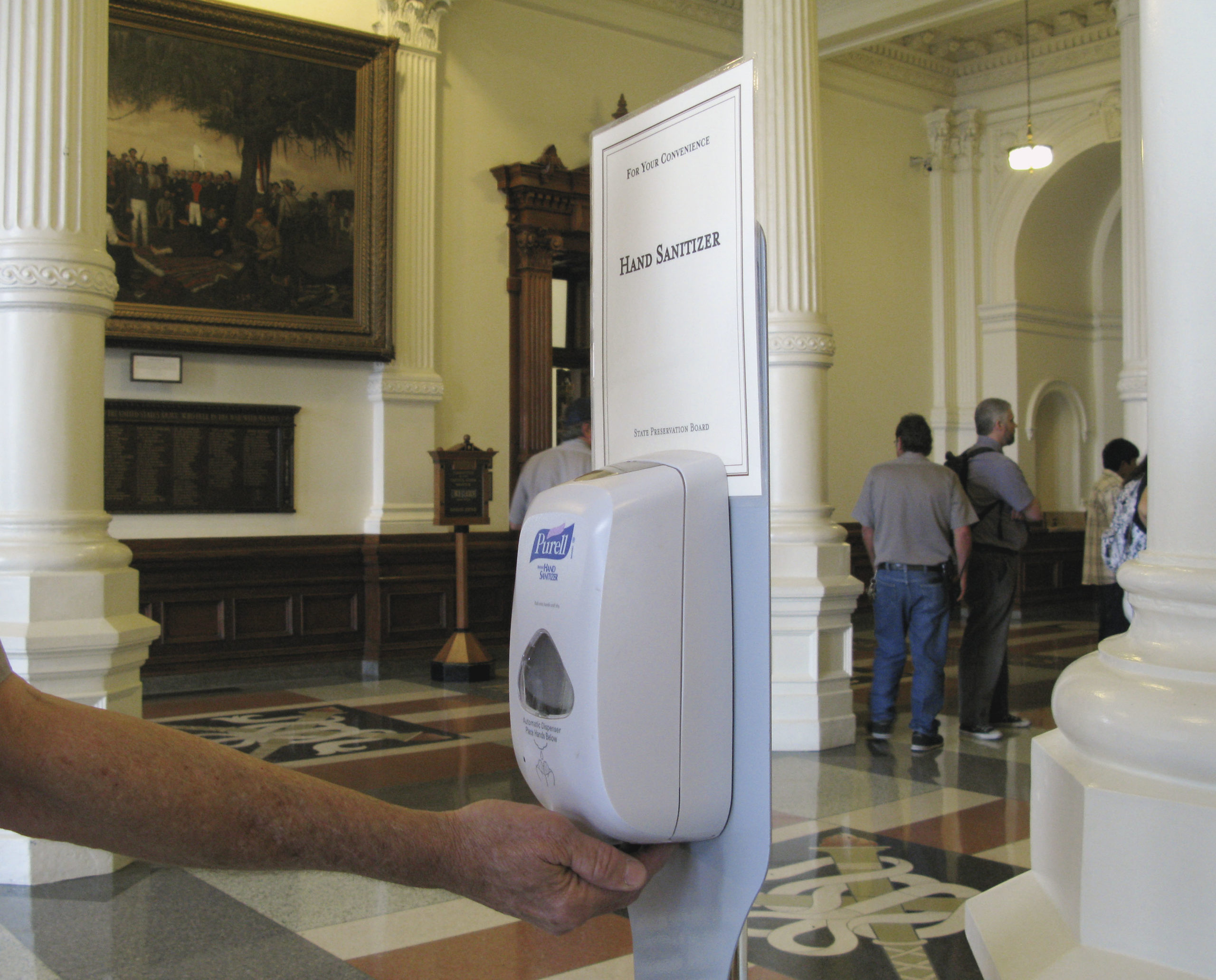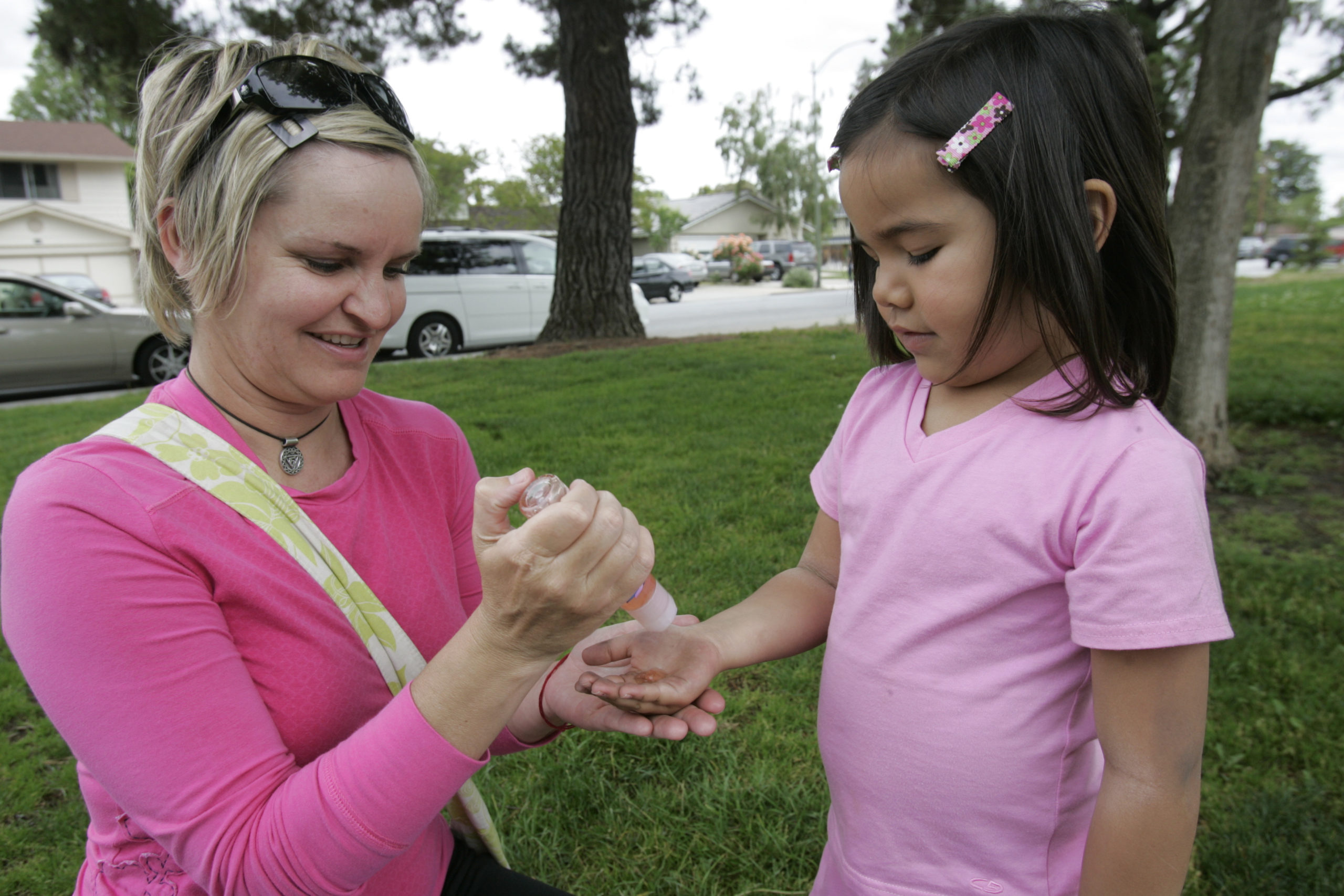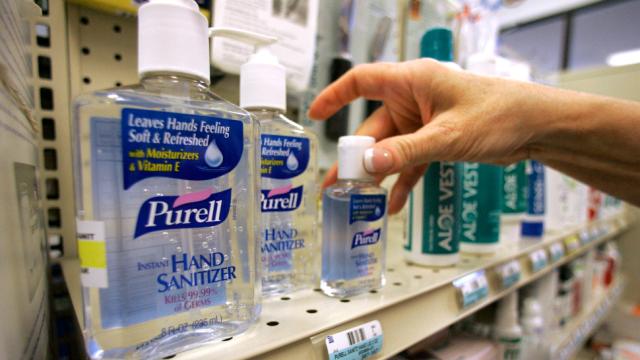Alcohol-based hand sanitizers are practically everywhere these days, but a new government report suggests an increasing number of children are ingesting these products and getting quite sick. Troublingly, many of these kids are drinking sanitizers to get a quick buzz from the alcohol.
The new report, compiled by the US Centres for Disease Control and Prevention, points to over 70,000 cases in which children under the age of 12 — either accidentally or deliberately — ingested liquid hand sanitizers.

Image: AP
These products contain between 60 to 90 per cent ethanol or isopropyl alcohol, and they’re typically infused with a pleasing aroma. Kids who drink them can get very sick, exhibiting breathing difficulties, eye problems, and even falling into a coma. Hand sanitizers may be a fixture of modern life, but there’s a dark side to these products that needs to be addressed.
“Older children (aged 6 — 12 years) were more likely to report intentional ingestion and to have adverse health effects and worse outcomes than were younger children, suggesting that older children might be deliberately misusing or abusing alcohol hand sanitizers,” write the researchers in the study.
Previous studies showed that sanitizer ingestion was starting to become a thing between 2005 to 2009, but the new figures, drawn from from the U.S. National Poison Data System, shows this trend is not just continuing, it’s getting worse.
The researchers, led by Cynthia Santos of the CDC’s National Center for Environmental Health, looked at data from 2011 to 2014, tracking illness in children aged 12 and under. During those years, 70,669 cases of hand sanitizer ingestion were reported. Of these, 91 per cent of cases involved children under the age of five. About 6,200 incidents revolved around kids aged six to 12, which are more likely to represent cases of intentional ingestion. And this is just what’s being reported. It’s difficult to fathom the entire scope of the problem given how many cases must go unnoticed and/or unreported.
Kids drinking hand sanitizers is obviously not good. Health consequences include breathing difficulties (apnea), excessive alcohol buildup in tissues (a condition called acidosis), and eye irritation. Some cases were quite serious, including five kids who went into a coma and three involving seizures.

Image: AP
The rising rates have to do with increased accessibility to hand sanitizers. These dispensers seem to be ubiquitous these days, especially in public institutions. In recent years, gel hand sanitizers have been installed at numerous schools, and kids are even being asked by some school boards to bring their own hand sanitizers. Revealingly, a study done in 2015 showed that, among 385 teens who ingested hand sanitizers, 35 per cent did it while they were at school.
The researchers recommend that schools encourage their students to clean their hands with regular soap and water. In the event hand sanitizers must be used, they suggest adult supervision and proper storage away from reach when the products aren’t in use.
[referenced url=”https://gizmodo.com.au/2016/04/the-most-effective-way-to-wash-your-handsaccording-to-science/” thumb=”https://i.kinja-img.com/gawker-media/image/upload/t_ku-large/gwtvo5cs5cxix0cnef3q.jpg” title=”The Most Effective Way To Wash Your Hands, According To Science” excerpt=”Keeping our hands clean is the best way to prevent the spread of infections, so it’s surprising to learn that that US Centres for Disease Control (CDC) and the World Health Organisation (WHO) disagree on how to do it right. A new study shows that the six-step hand-washing technique promoted by the WHO is the better option.”]
Indeed, the scientists bring up a good point: proper hand washing with soap and water is the best way to reduce the number of microbes in most situations. According to the CDC, alcohol-based hand sanitizers are effective at quickly reducing the number of germs on hands (provided the gel contains at least 60 per cent alcohol), but sanitizers don’t eliminate all types of germs. Sanitizers aren’t very good at removing harmful chemicals, such as pesticides and heavy metals, nor are they effective when hands are visibly dirty or greasy.
[CDC]
